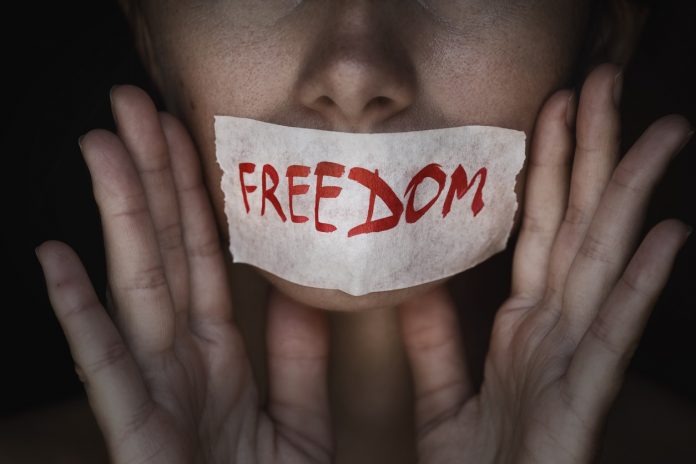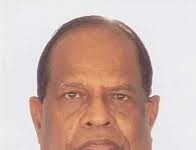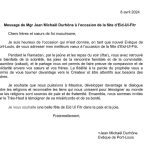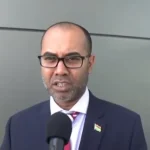As Mauritius considers its new regulations limiting freedom of speech on the internet, it must consider whether it wishes to remain a free and democratic country — the glorious fact that has long distinguished it among the world’s nations — or slide down the slippery slope from limited speech, to limited freedom, to tyranny.
The long history of the human race has shown that a society remains free only so long as speech remains free. Indeed, the surest warning that a tyrant is preparing to seize control of a nation, throughout modern history, is the start of attacks on free speech — from Nazis burning books, to outspoken Russian writers exiled to Siberia, to an Iranian Ayatollah authorizing assassination of a writer, to modern critics imprisoned by China, poisoned by Russia, and assassinated by North Korea.
And countless modern African tyrants have made their first move from elected leader to dictator — or from elected democrats to “entitled” dynasty — by first shutting down the opposition’s media.
In the 21st Century, the primary mode of mass communication has changed, from the costly, narrow avenue of printing onto paper, past the 20th Century mode of radio and television broadcasting, to the nearly-costless, broad super-highway of the internet — handing the power of mass communication to the masses.
Certainly, that has come with some challenges, as the universal access to the internet has led to a lack of qualification, filtering, editing, and accountability common to print and broadcast media (who therefore remain relevant and essential).
But, at the same time, the internet has ensured that more voices are heard — regardless of their wealth or power or connections (except to the internet). It has brought true equality of opportunity to public communication.
Of course, in doing so, the resulting vast numbers of people, so empowered in this way, will inevitably include people who will commit abuses, even crimes. Yet, before the internet, the same was true with such technological advances as telephones, bicycles, motorcycles, and automobiles — which gave the public endless opportunities to act recklessly, or criminally (even murderously), and evade accountability.
Reasonable laws and regulations were put in place, long ago, in all civilized modern societies, including Mauritius, to prevent or punish such abuses. And those rules remain in force, today. And, with the internet relying on various forms of telecommunications, those existing telecommunications rules (for both wire and broadcast communication) provide the language — too seldom recognized by authorities — to appropriately regulate online conduct, whether by telephone, fax, text-messaging, e-mail, blogging, or social media.
What could impel ANYone to add regulations, unique to the internet, that stray from the standards for regulating any other form of electronic communications? An authority’s frustration with the democratizing impact of UNIVERSAL mass communications. In short, an authority’s frustration with DEMOCRACY.
It is a dangerous thing to allow any government to begin to strangle free speech — the breath of democracy. It is the beginning of the end.
At present, the government of Mauritius — long regarded with respect and admiration — is suddenly becoming suspect in the eyes of the world, as it moves to curtail freedom of speech (even speech that “annoys”). It echos the initial acts of totalitarians and tyrants everywhere, around the world and throughout history.
This not only threatens the future freedom of Mauritians, but their prosperity, as well.
The obvious first risk is to Mauritius’s valuable internet-and-telecommunications industry, which cannot operate freely and reliably under such regulation. And Mauritius becomes the wrong place for honest banking in the era of global transparency and openness, driving out the honest institutions in Mauritius’s critical finance industry. It threatens the tourism industry, as foreigners will come to fear that their candid personal communications, while on vacation, could land them in prison.
Such “oversight” threatens to worsen the “brain drain” that has undermined Mauritius’s future, as energetic and passionate young professionals — so critical to both foreign investors and domestic enterprise — see the older, governing generation as a threat hovering over their every impulsive, young, free expressions. Why would they risk prison on an island, when a free and open Europe and America await their talent and energy?
Under such misguided control, commerce runs aground, and spills its wealth recklessly on the unethical few, leaving a mess for the rest to clean up. Soon, all the people’s prosperity is wasted, and lost, as more honest commerce simply steers around the land of the corrupt — leaving only a shameful few hoarding the remaining wealth of the nation.
Free speech allows the common man to be heard crying out about injustice and corruption by the government, and for honest insiders to reveal corruption when it occurs. Such voices keep the powerful in check, and guard the rights, freedoms, security and prosperity of all.
But strangling free speech strips that essential protection away — allowing corruption to go unchecked, injustices unchallenged, and power to disconnect itself from justification. It ends in tyranny. Mauritius, over the centuries, has come too far to return to the injustices of the past, or to a new tyranny of the future.
Respectfully,
Richard Harris
former Civil Rights Commissioner, City of Wichita, USA
former Member, World Trade Council of Wichita
Certified Arbitrator, Better Business Bureau
State-Certified Instructor in Computers
business/technology consultant
former journalist
NOTE : Les points de vue exprimés dans cette rubrique ne reflètent pas nécessairement ceux de la rédaction.




![[Message de l’Eid-Ul-Fitr 2024] Atteindre la piété… Et après ???](https://sundaytimesmauritius.com/wp-content/uploads/2023/10/Bashir-new-218x150.jpg)


![[Democracy Watch Mauritius] The Rwanda genocide started 7th April 1994, 30 years ago. Has humankind learnt the lesson? Consider Israel’s action in GAZA today!](https://sundaytimesmauritius.com/wp-content/uploads/2024/03/democracy_0-218x150.jpg)

![[Mer Rouge] Le Mouvement Anti-Pollution s’oppose à l’implémentation d’une raffinerie de graphite](https://sundaytimesmauritius.com/wp-content/uploads/2024/04/Mer-Rouge-150x150.jpg)



![[Mer Rouge] Le Mouvement Anti-Pollution s’oppose à l’implémentation d’une raffinerie de graphite](https://sundaytimesmauritius.com/wp-content/uploads/2024/04/Mer-Rouge-100x70.jpg)

